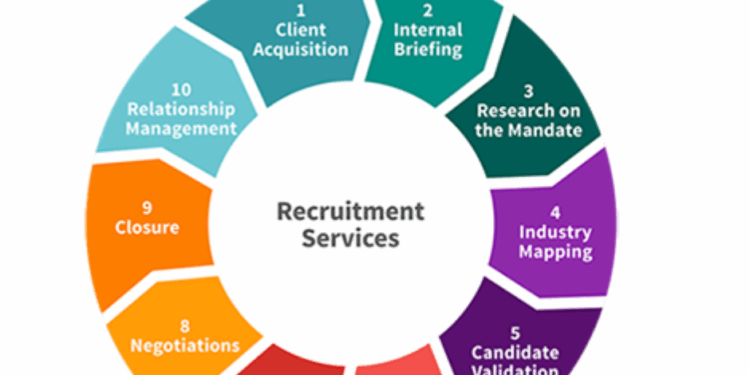By Dilip Sharma – Business & HR Expert since 2002 | View Profile
Introduction: A Turning Point in India’s IT Employment Landscape
Tata Consultancy Services (TCS), India’s largest IT services company, has recently confirmed a major workforce reduction, announcing plans to cut around 12,000 jobs, representing 2% of its global workforce. This move comes alongside a strategic push towards Artificial Intelligence (AI) and automation, aligning with a growing industry-wide shift.
However, the scale and manner of these layoffs have triggered widespread discussion in HR circles — including allegations of forced resignations and concerns about the future of tech jobs in India.
As someone who has been in the recruitment and HR consultancy domain for over two decades, I’ve witnessed many such restructuring phases. But the current one is uniquely shaped by AI disruption, economic pressures, and changing talent requirements — a combination that demands a careful look at both the business logic and the human impact.
The Layoffs: Facts and Figures
- Number of Employees Affected: Approximately 12,000, or 2% of TCS’s global workforce.
- Reason Stated: A strategic shift towards AI readiness and productivity enhancement.
- Impacted Levels: From fresh graduates to mid-level professionals, with some senior staff also included.
While TCS maintains that these changes are part of an organizational realignment, internal employee accounts suggest the implementation process has been deeply unsettling for many.
Allegations of Forced Resignations
Multiple sources claim that many employees were not simply handed termination letters but were pressured to resign voluntarily.
- Threat of Losing Benefits: Employees were told that refusal to resign could result in the loss of final settlement compensation and the much-needed relieving letter — a critical document for future employment.
- Blacklisting Fear: Some report being warned of being “blacklisted” in the IT industry if they didn’t comply.
- Financial Incentives: A few employees were offered three months’ salary to resign voluntarily, with the alternative being termination without any compensation.
- High-Pressure Meetings: Accounts mention instances where employees were asked to surrender their company devices before being called into HR meetings to discuss their “exit.”
As an HR consultant, I know that restructuring is sometimes unavoidable — but transparency and dignity in the process are essential to preserve trust, not just among those leaving, but also among those who remain.
Who is Most Impacted?
- Freshers: Recent hires are facing unexpected career roadblocks, particularly after changes in bench policy that limit how long they can remain without a billable project.
- Mid-Level Professionals: Those in coding, testing, and documentation — roles most vulnerable to automation — have been disproportionately affected.
- Contract and Support Staff: While not officially part of the “12,000,” many outsourced roles are reportedly under review.
Industry Context: A Broader Trend of AI-Driven Restructuring
TCS’s move is not isolated. Globally, AI and automation adoption is accelerating, and big tech companies are reevaluating their workforce needs.
- Similar Cases:
- Accenture, Infosys, and Wipro have also slowed hiring and cut roles in certain divisions.
- Globally, firms like IBM and Amazon have announced staff reductions in areas impacted by automation.
- Why This Shift?
- AI is taking over repetitive and low-value tasks such as manual coding, software testing, and documentation.
- This frees companies to focus on strategic, high-value, and client-facing roles — but reduces the need for certain categories of employees.

Economic Pressures Adding Fuel to the Fire
Beyond technology, global economic uncertainty is pressuring IT budgets:
- Weak Demand Environment: North American and European clients — the largest markets for Indian IT firms — are delaying or scaling down projects.
- Margin Pressures: Rising operational costs mean companies are seeking productivity gains wherever possible.
- Currency Fluctuations: Exchange rate volatility impacts revenues from overseas contracts.
In this context, AI-driven restructuring is seen as both a cost-cutting and future-proofing measure.
The Human Side: Fear, Uncertainty, and Career Recalibration
For the employees impacted, the layoffs bring emotional stress and professional uncertainty. In my two decades of Recruitment,HR and Business consultancy, I’ve seen how sudden employment loss can derail careers, especially in sectors where skills need constant updating.
Key challenges laid-off employees face now include:
- Skill Gap: Many affected roles are being automated, so finding equivalent positions without upskilling is difficult.
- Job Market Saturation: Thousands entering the job market simultaneously increase competition.
- Mental Health Impact: Job insecurity often brings stress, anxiety, and even depression.
Future of Work: What This Means for the Indian IT Workforce
The TCS layoffs highlight some critical truths:
- AI-Resistant Skills Will Win: Roles requiring creative problem-solving, business acumen, and deep client interaction are less likely to be automated.
- Continuous Learning is Mandatory: Certifications in cloud computing, AI, data science, cybersecurity, and advanced analytics will be career differentiators.
- Hybrid Teams Are the Future: AI will assist humans, but humans will remain essential for decision-making, ethical oversight, and innovation.
Expert HR Perspective: My Advice to Employees & Employers
For Employees:
- Upskill Immediately: Focus on areas AI cannot easily replace — business strategy, innovation, and leadership.
- Network Proactively: Build relationships in your industry before you need them.
- Keep Documents Ready: Always maintain updated resumes, portfolios, and relieving letters.
For Employers:
- Maintain Transparency: Even in tough times, communicate clearly about why changes are happening.
- Offer Transition Support: Provide career counseling, training, and job placement assistance for affected staff.
- Preserve Morale: How you treat exiting employees shapes how your remaining staff perceive your leadership.
Conclusion: A Defining Moment for India’s IT Sector
The TCS layoffs mark a pivotal moment — one where technological evolution, economic realities, and workforce transformation converge.
As an HR professional who has navigated countless hiring booms and downturns since 2002, I believe this is not the end of IT job growth in India — but it is the end of an era where entry-level coding jobs were abundant and secure.
Author: Dilip Sharma – Business & HR Expert | View Profile
Published on: ExpertGraph.in


















